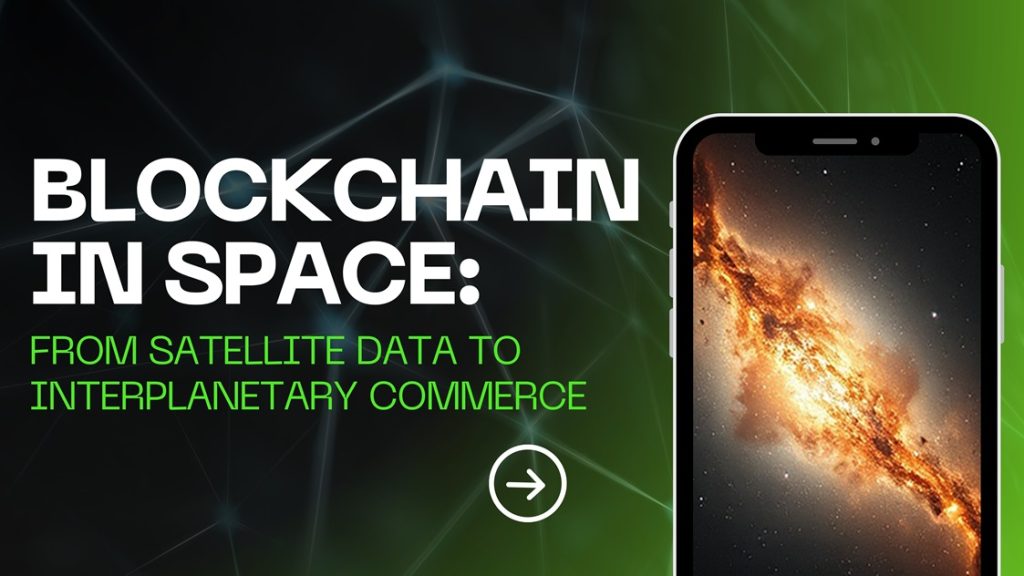Space exploration is quickly moving beyond government programs into a new era where private companies and startups play a central role. NASA, SpaceX, and a range of smaller firms are testing how blockchain can improve security, transparency, and efficiency in space operations. The use cases are not science fiction. They are practical steps toward managing satellite data, streamlining supply chains, and even preparing for future interplanetary trade.

Managing Satellite Data
Satellites generate massive amounts of data every day. Weather forecasting, GPS navigation, and communication systems all depend on this information. The challenge is that data can be intercepted, altered, or delayed if it is not handled securely. Blockchain offers a way to record satellite data in a decentralized and tamper-proof system.
If agencies and private companies store satellite data on blockchain networks, the information can be verified and shared without fear of corruption. This can be useful for everything from climate research to disaster response. Craig Pickering of Cirrus Networks and Gnodi has emphasized that blockchain can make satellite data more reliable for governments and businesses, creating trust in a resource that is becoming critical to daily life on Earth.
Securing Space Logistics
Launching rockets and managing cargo in space involves complex supply chains. Components are built across multiple countries, assembled, and then transported through carefully timed operations. Any disruption or lack of transparency in this chain can lead to costly delays. Blockchain can help by providing a transparent ledger of where parts come from, who handled them, and whether they meet required standards.
Smart contracts can also automate certain steps in the process. For example, when a shipment of satellite components passes inspection, a contract on the blockchain can automatically release the next stage of payment. This reduces paperwork, limits disputes, and helps keep projects on schedule.
Craig Pickering of Cirrus has pointed out that applying blockchain to space logistics could reduce risks and costs for both established players like NASA and SpaceX and for startups trying to gain a foothold in the industry.
Preparing for Interplanetary Commerce
Looking further ahead, blockchain could be the foundation for trade beyond Earth. If humans establish permanent bases on the Moon or Mars, there will be a need to track resources, manage ownership, and conduct financial transactions across planets. A decentralized system that works without relying on one country or company will be essential.
Blockchain provides a structure for this kind of interplanetary commerce. Resources mined on the Moon could be tokenized and traded securely. Supplies sent to Mars could be tracked from launch to delivery. While this may sound futuristic, early tests by space agencies and private firms show that planning for these scenarios has already begun.
Blockchain will not replace rockets, satellites, or human ingenuity, but it will add a layer of trust and efficiency to space exploration. From securing satellite data to building the framework for interplanetary trade, it is becoming part of the conversation in every corner of the space industry. Leaders like Craig Pickering of Cirrus Networks and Gnodi see blockchain as a practical tool, not a buzzword, for the future of space.